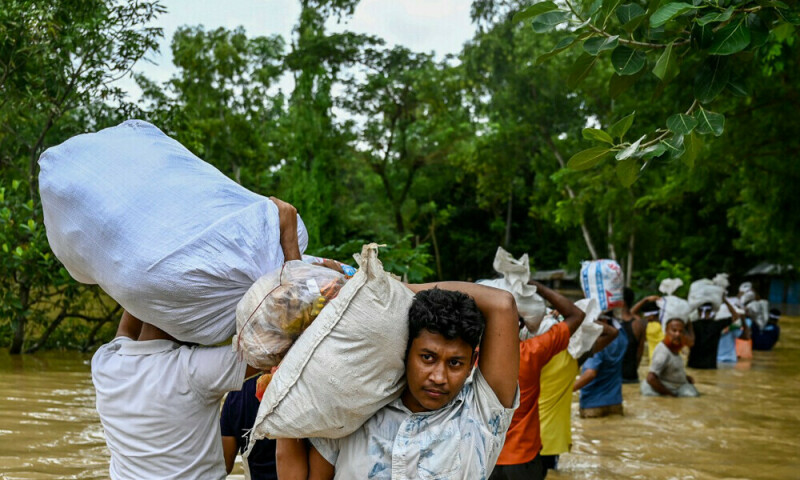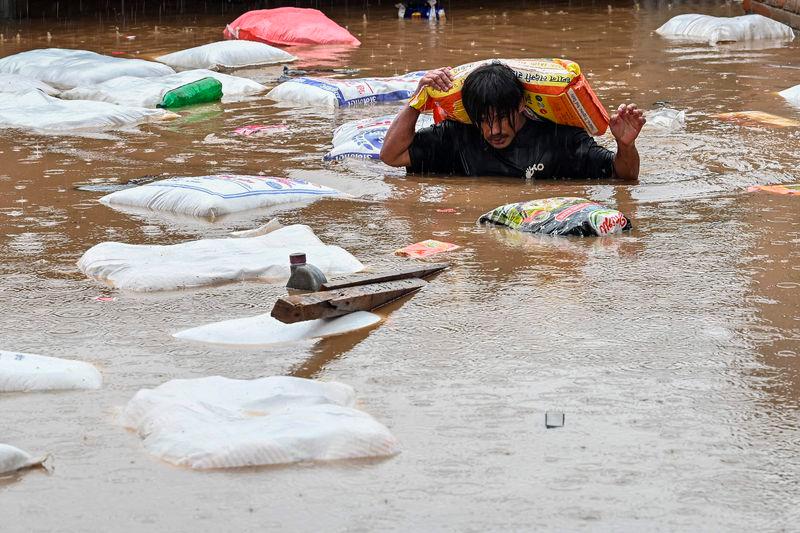Bangladesh is grappling with a significant agricultural crisis as recent floods have destroyed an estimated 1.1 million metric tons of rice, according to data released by the country’s agriculture ministry. This substantial loss has forced the nation to rapidly increase its imports of the staple grain amid soaring food prices, underscoring the severe impact of climate-related disasters on food security in the region.

The devastating floods, caused by heavy monsoon rains and torrential upstream runoff, struck Bangladesh in two major waves during August and October. These natural disasters claimed at least 75 lives and affected millions of people, with the eastern and northern regions experiencing the most severe crop damage.
In response to the crisis, the Bangladeshi government is swiftly moving to import 500,000 tons of rice and is expected to soon permit private sector imports, as stated by a food ministry official. This surge in imports could potentially boost shipments from neighboring India, the world’s top rice exporter, which recently reduced its duty on parboiled rice exports to 10%.
The interim government, which came to power in August following protests that forced former Prime Minister Sheikh Hasina to seek refuge in India, faces the challenging task of stabilizing food prices that have surged nearly 20% in recent months. The floods have not only impacted rice production but also destroyed over 200,000 tons of vegetables, contributing to total agricultural losses estimated at around 45 billion taka ($380 million).

Bangladesh, typically the world’s third-largest rice producer, usually yields nearly 40 million tons of rice annually to feed its population of 170 million. However, the country’s susceptibility to natural disasters often disrupts production, leading to increased reliance on imports.
The recent floods have highlighted Bangladesh’s vulnerability to climate change. A 2015 World Bank Institute analysis estimated that 3.5 million people in Bangladesh are at risk of annual river flooding, a threat that scientists warn is worsening due to global climate change.
Khandakar Mohammad Iftekharuddaula, chief scientific officer at the Bangladesh Rice Research Institute, emphasized the need for developing more resilient crop varieties: “To ensure food security in the face of increasing climate challenges, it is essential to develop more flood- and drought-tolerant crop varieties, along with short-duration varieties.” He stressed the importance of investing in agricultural research to help farmers adapt to changing weather patterns and stabilize yields in difficult conditions.



